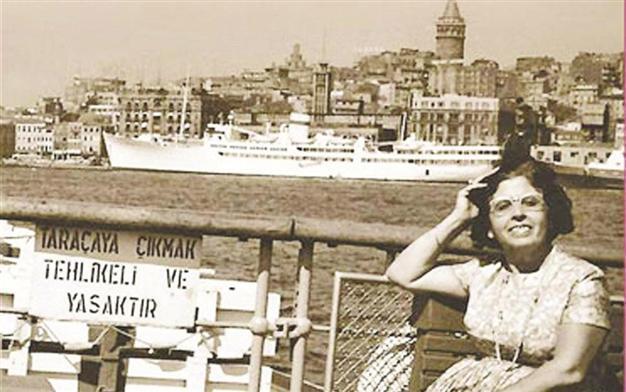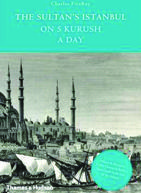A collection of memories and illustrations from Jewish Istanbul
William Armstrong - william.armstrong@hdn.com.tr
 ‘Jewish Istanbul: A Collection of Memoirs and Illustrations,’ by Roz Kohen (Libra Kitap, 2012, 50TL, pp 369)
‘Jewish Istanbul: A Collection of Memoirs and Illustrations,’ by Roz Kohen (Libra Kitap, 2012, 50TL, pp 369)Roz Kohen grew up in Istanbul in the middle of the 20th century, when the Galata district of the city was still home to a thriving Jewish community. Her episodic memoir of a childhood in that milieu aims, as she writes in the introduction, “to reflect the mood of Jewish life in Istanbul as I remember it.” Each modest chapter introduces us to the characters and social rituals of 1950s life in the community, and - in an original twist - the whole book is printed bilingually in both English and Ladino, (the language that the Sephardic Jews brought with them from the Iberian Peninsula in the 15th century).
Many chapters are simple portraits of scenes within the Kohen family’s small, middle class apartment, or snapshots from the Galata neighborhood in which that apartment was located. Wider political events were profoundly affecting Turkey’s Jewish community at the time, but barely any reference is made to them - the focus is instead almost entirely local. The book thus resonates with a certain idealized view of the city’s past, in which local and self-contained religious or linguistic communities concerned themselves with their own affairs. In this view, overarching supra identities never really resonated until the advent of modern nationalism.
One of the book’s most poignant chapters, therefore, is the one describing the letters sent to the widowed “Aunt Sarina” from her daughter in Israel. As described in the letters, the state of Israel strikes the family as a land of “wonders and miracles,” free of the worries besetting the Jewish community in Istanbul: "In Israel there are no unpleasant customs … in Israel young women find husbands … the women have jobs … the elderly have pensions and there isn’t even a need for gasoline heaters. The warmth of the sun and the sea resuscitate even the dead." In a later chapter, Kohen describes saying farewell to an uncle departing in the regular passenger ship that traveled from the Istanbul port of Karaköy to the Israeli city of Haifa. Such sudden invasions of the political into the local are chastening reminders of how essentially domestic lives are ultimately shaped by overpowering political determinants.
In the end, Kohen herself was not immune to those tides. Along with much of her family, she ended up emigrating and setting down roots in America. Returning periodically to Istanbul, she is able to observe the rapid changes taking place in the city and the steady erosion of much of the old life that she remembered. On each return, Kohen had always paid a visit to her childhood apartment in Galata, but she recently received an email from her cousin explaining that the old building had suddenly collapsed:
The inhabitants had long since deserted this century old building and the collapse had taken place during the night, causing no further damages. I could not believe the news; I thought that she was surely mistaken. Such a majestic building, so strong and stern, so large, was surely to be there for eternity! … Yet my cousin was not mistaken. On my last visit to the apartment named Angel, I found huge wreckage where the apartment used to be. The pile of stones stood silently, ready for the cleanup, and ready to become part of history leaving no witnesses behind.
With the physical fabric of such memories steadily disappearing, the modest but touching reminiscences collected in this book represent Kohen’s honorable attempt to document that vanishing past.
Recommended recent release

‘The Sultan’s Istanbul on 5 Kurush a Day’ by Charles Fitzroy
(Thames & Hudson, 25TL pp 144)










